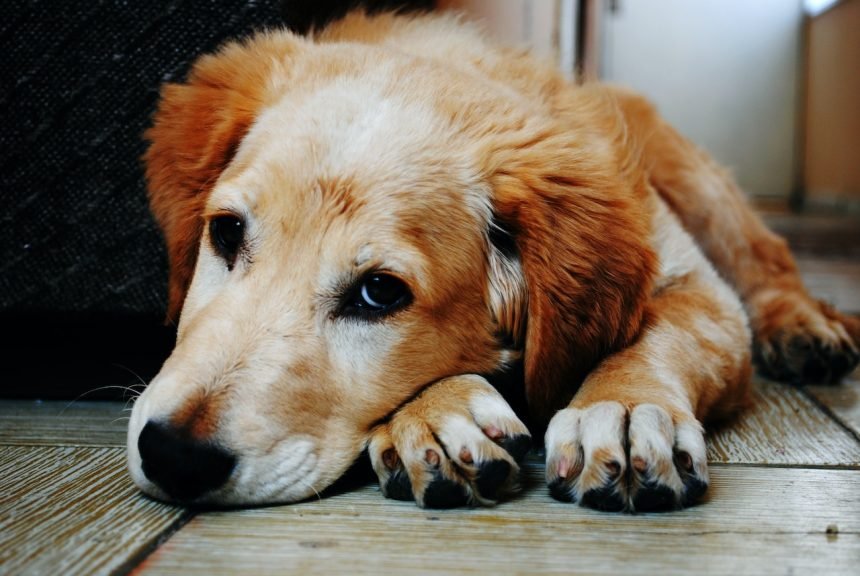Diarrhea is a common issue in dogs and can be caused by a variety of factors, such as dietary changes, infections, and food intolerances. In addition to seeking veterinary advice, managing your dog’s diet is an important aspect of managing diarrhea.
Here are some foods to consider feeding your dog when they have diarrhea:
- Cooked White Rice: Rice is a great source of carbohydrates, which can help to firm up your dog’s stool. Cooked white rice is easy to digest and can help soothe your dog’s upset stomach. You can mix it with some cooked chicken or low-fat cottage cheese for added flavor and protein.
- Boiled Chicken: Boiled chicken is another bland and easy-to-digest food that can be beneficial for dogs with diarrhea. Chicken is a good source of protein and can help to provide your dog with the energy they need to recover. Make sure to remove any skin or bones before serving.
- Canned Pumpkin: Canned pumpkin is a good source of fiber and can help regulate your dog’s digestion. Make sure to choose plain canned pumpkin, not pumpkin pie filling which can contain added sugar and spices. You can add a spoonful to your dog’s food or give it to them as a treat.
- Low-Fat Yogurt: Low-fat plain yogurt contains probiotics, which are beneficial bacteria that can help restore your dog’s gut health. Make sure to choose a yogurt that does not contain added sugar or artificial sweeteners. You can mix it with your dog’s food or give it to them as a separate snack.
- Bone Broth: Bone broth is a nutritious and easy-to-digest food that can help provide your dog with important electrolytes and nutrients. You can make your own bone broth by boiling bones with water and adding some vegetables, or you can buy bone broth from a pet store or online.
Feeding your dog the right foods when they have diarrhea can help manage their symptoms and promote their recovery. Consider incorporating some of these easy-to-digest and nutrient-rich foods into your dog’s diet when they are experiencing diarrhea.
Foods to Avoid When Your Dog Has Diarrhea
When it comes to caring for a dog with diarrhea, it’s important to pay close attention to their diet. Certain foods can aggravate the digestive system and make diarrhea worse, while others can help to soothe the digestive tract and promote healthy bowel movements. Here are some foods to avoid if your dog has diarrhea:
- Dairy products: Milk, cheese, and other dairy products can be difficult for dogs to digest, especially if they are lactose intolerant. Avoid giving your dog any dairy products until their diarrhea has resolved.
- Spicy or fatty foods: Foods that are high in fat or spice can be hard on the digestive system and may exacerbate diarrhea. Avoid giving your dog any spicy or fatty foods until their digestive system has had a chance to recover.
- Raw or undercooked meat: Raw or undercooked meat can contain harmful bacteria that can worsen diarrhea or even cause food poisoning. Always make sure that your dog’s meat is cooked thoroughly before feeding it to them.
- Human food: It’s important to avoid giving your dog any human food during a bout of diarrhea. Human food can be too rich or spicy for a dog’s digestive system and can worsen their symptoms.
- Bones: While bones can be a tasty treat for dogs, they can also be a choking hazard and may cause gastrointestinal blockages. Avoid giving your dog any bones until their diarrhea has resolved.
By avoiding these foods and feeding your dog a simple, bland diet, you can help to soothe their digestive system and promote healthy bowel movements. A bland diet typically consists of boiled chicken and rice or boiled ground beef and rice, with no seasonings or additives. You can also add a small amount of canned pumpkin to your dog’s food, as it is high in fiber and can help to regulate bowel movements.
It’s important to remember that if your dog’s diarrhea persists for more than a day or two, or if they are experiencing other symptoms such as vomiting or lethargy, you should consult with your veterinarian. They can help to diagnose the underlying cause of the diarrhea and provide appropriate treatment to help your dog feel better.







